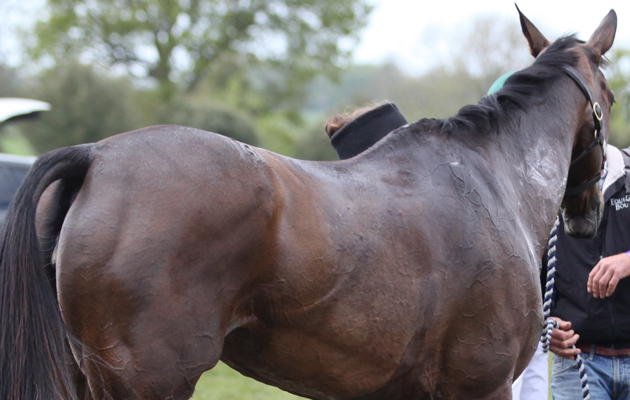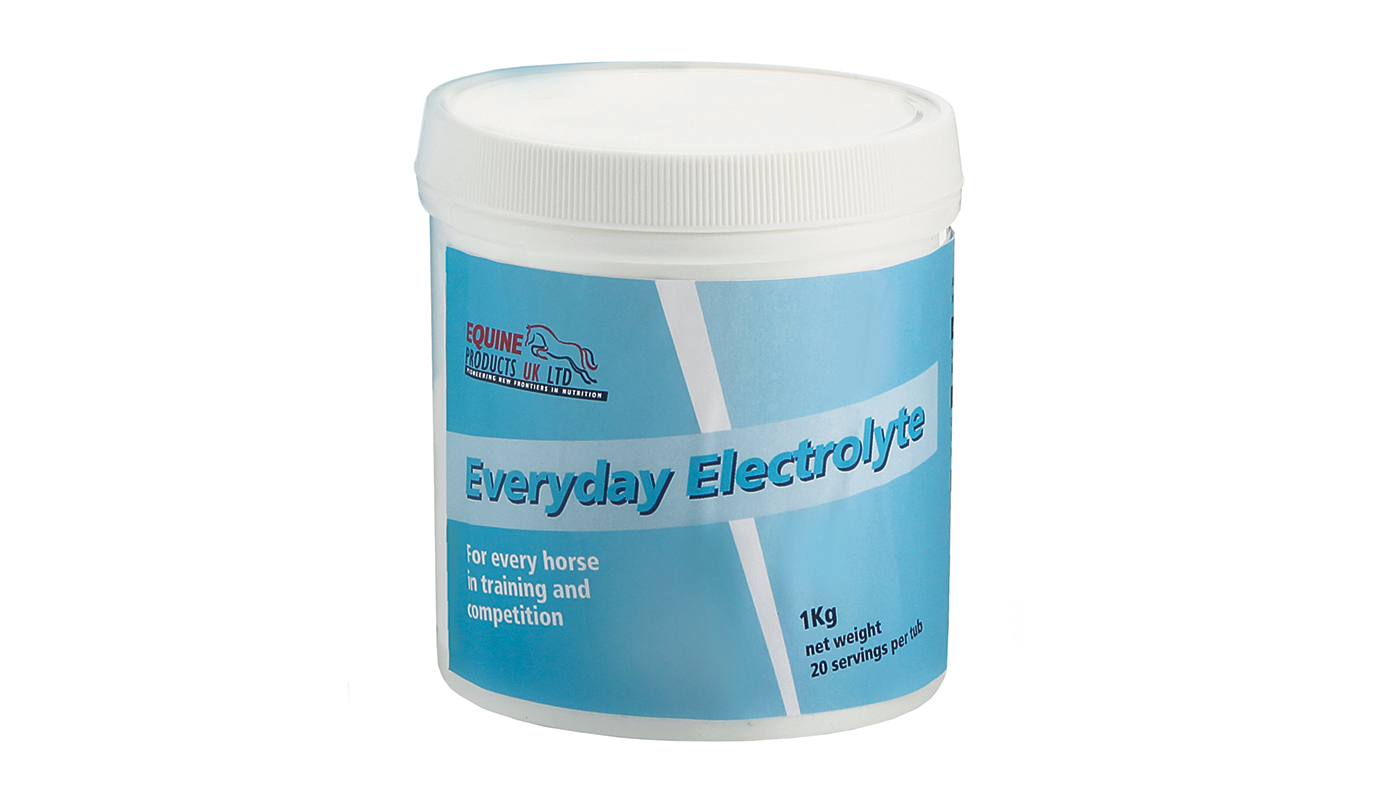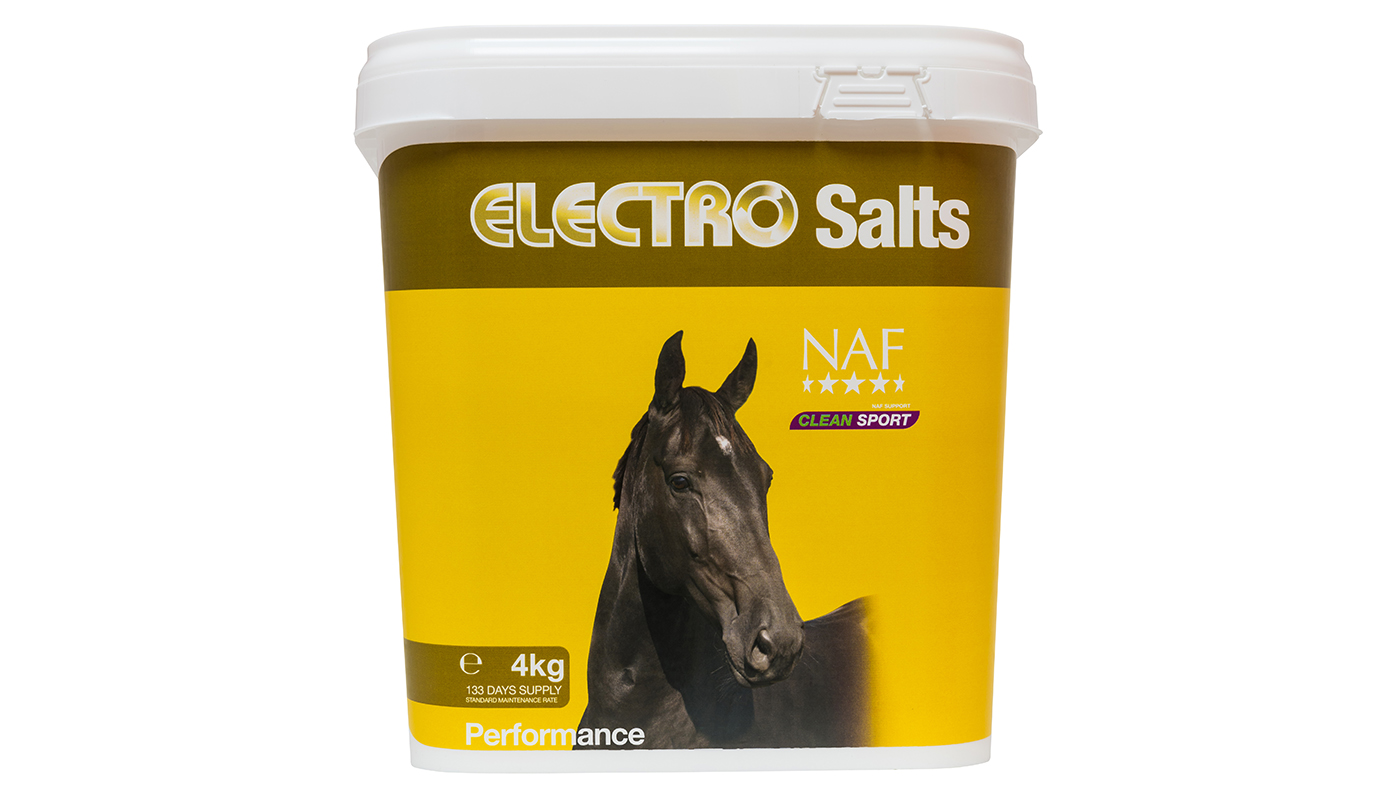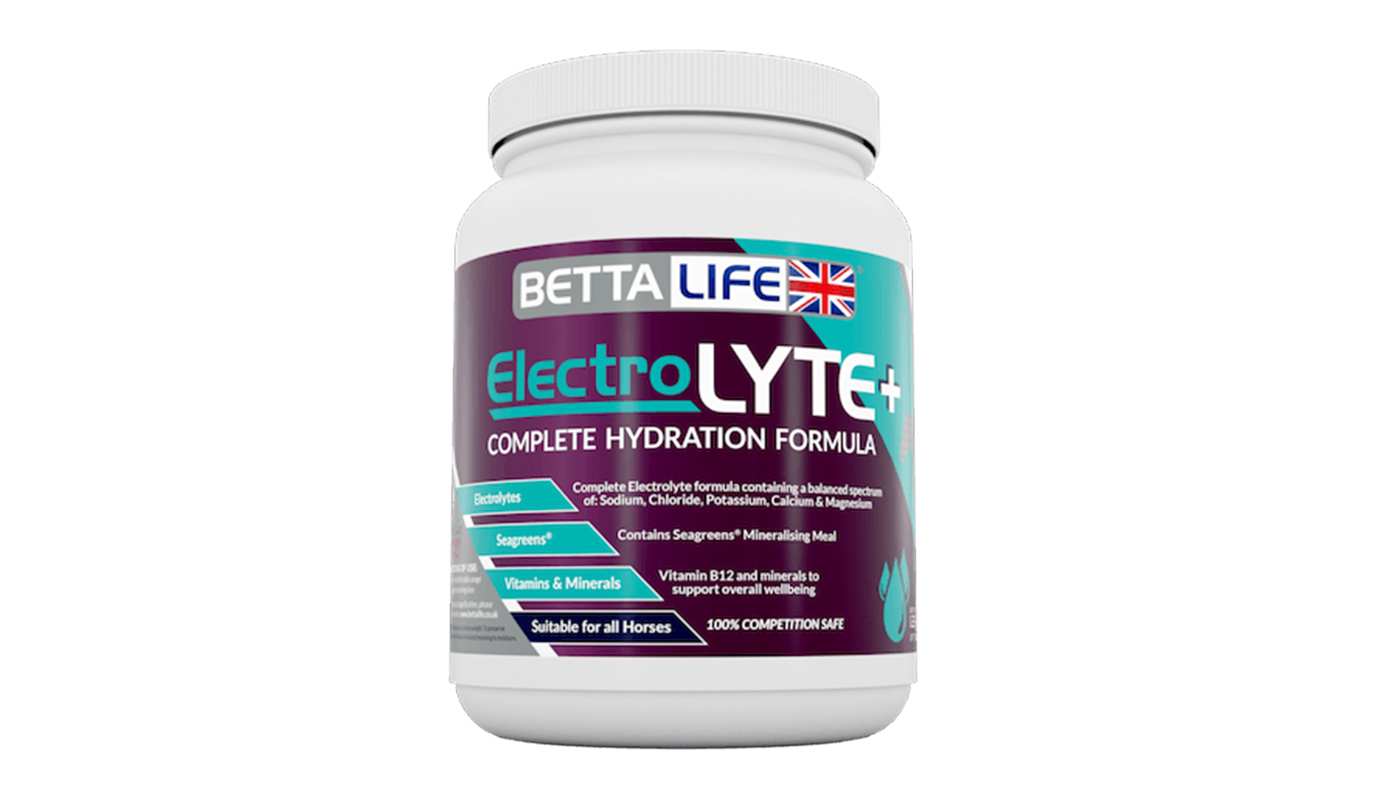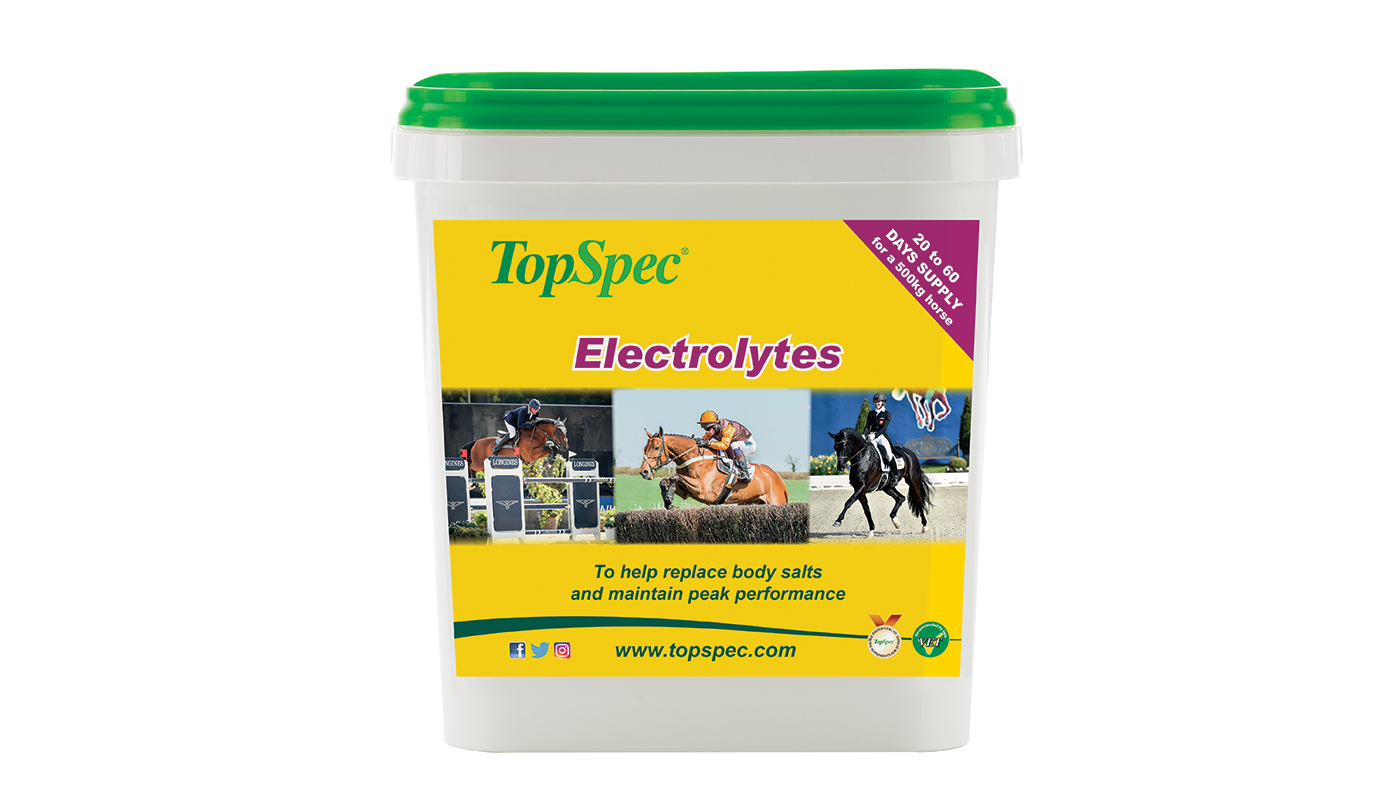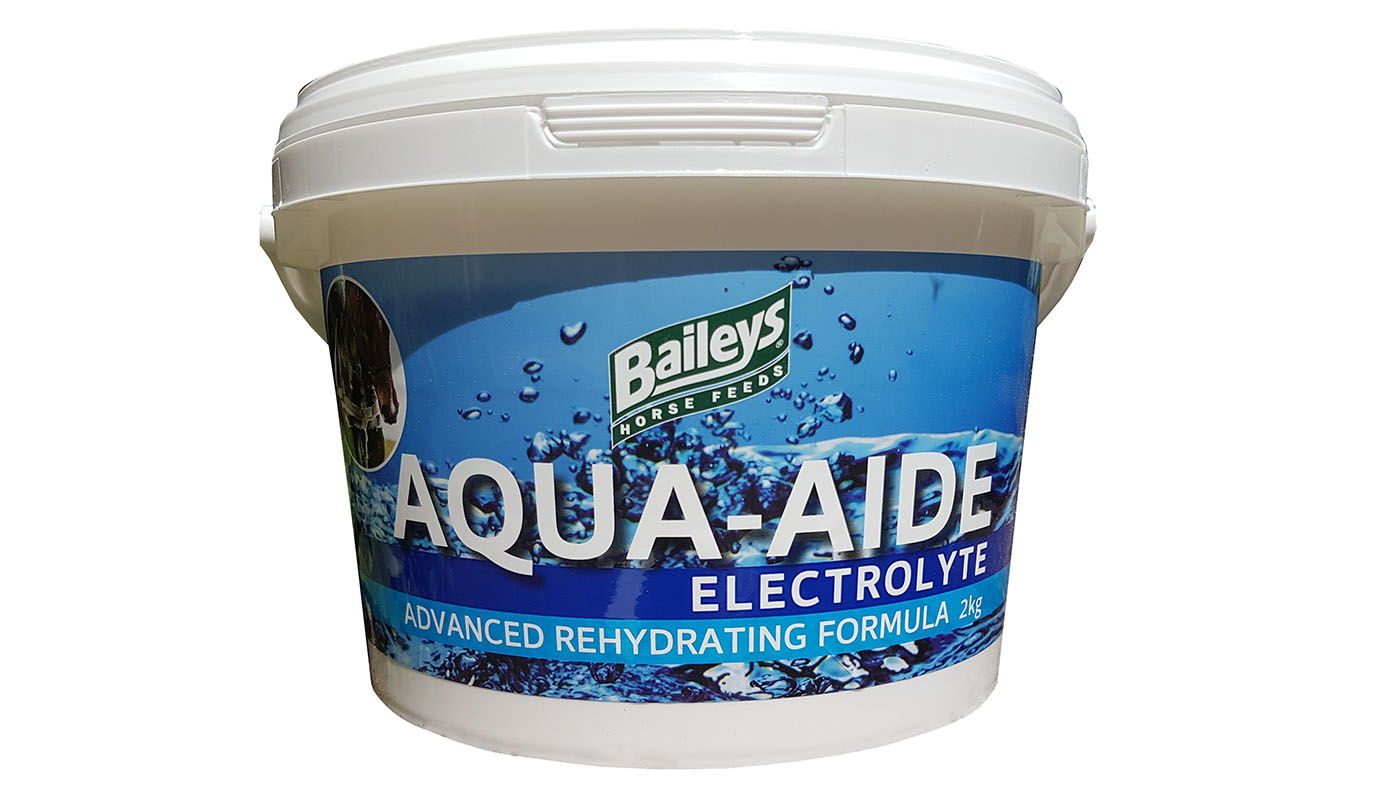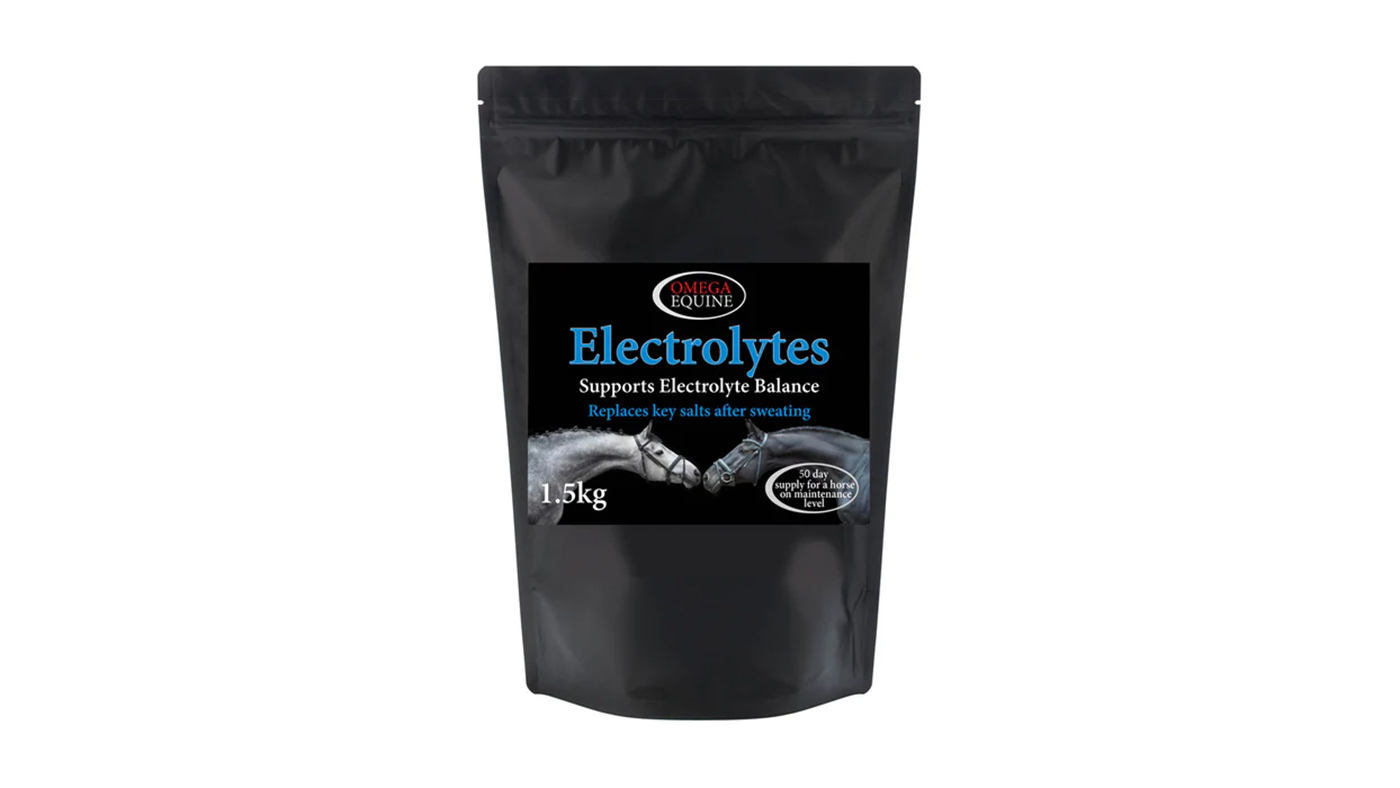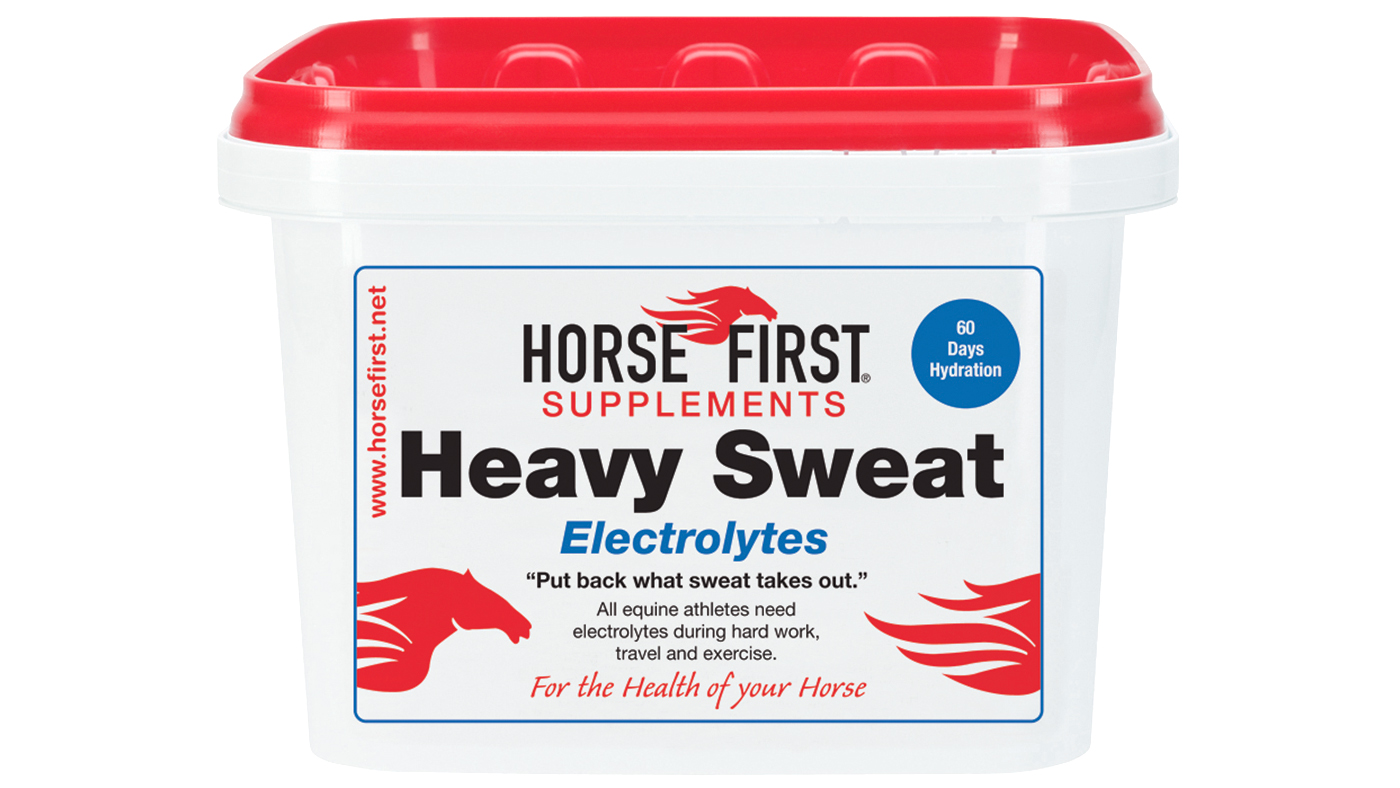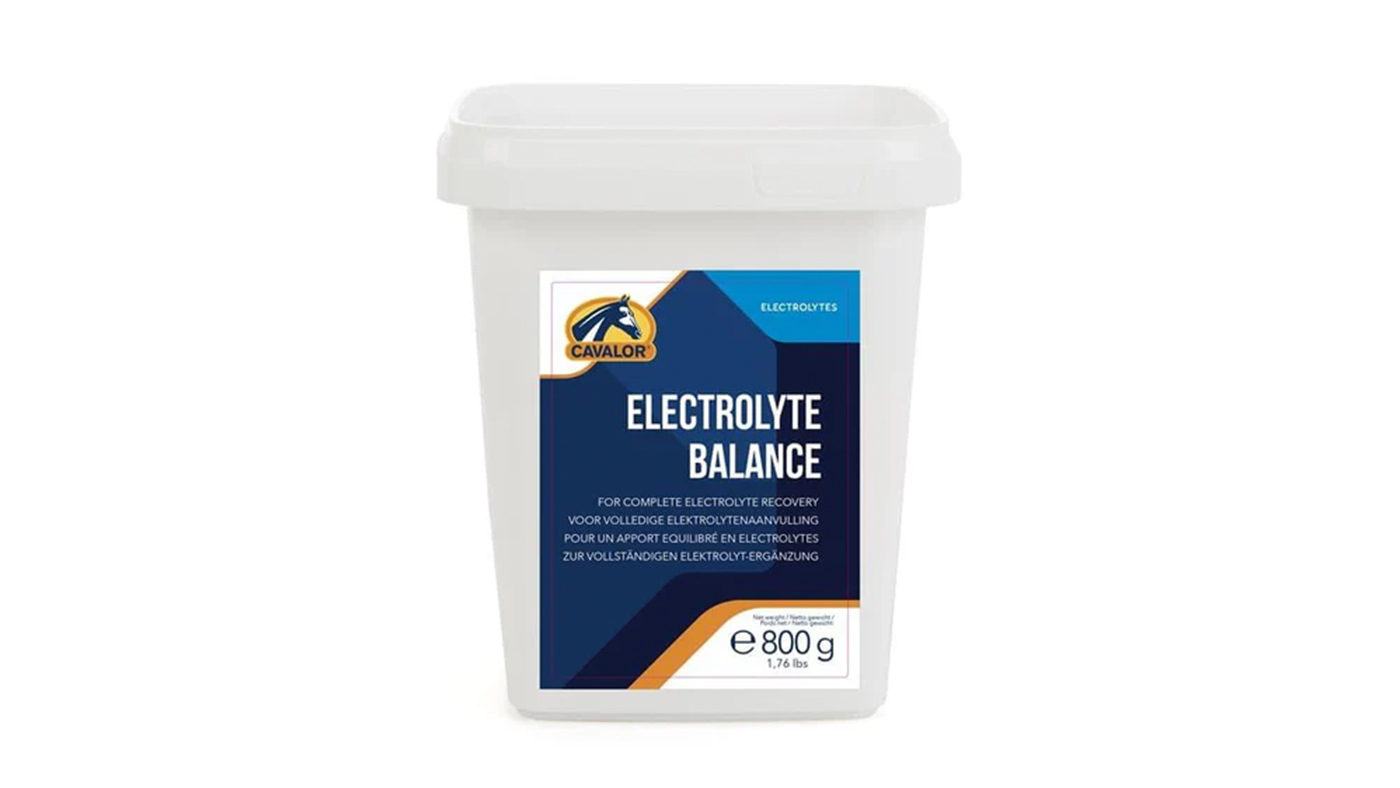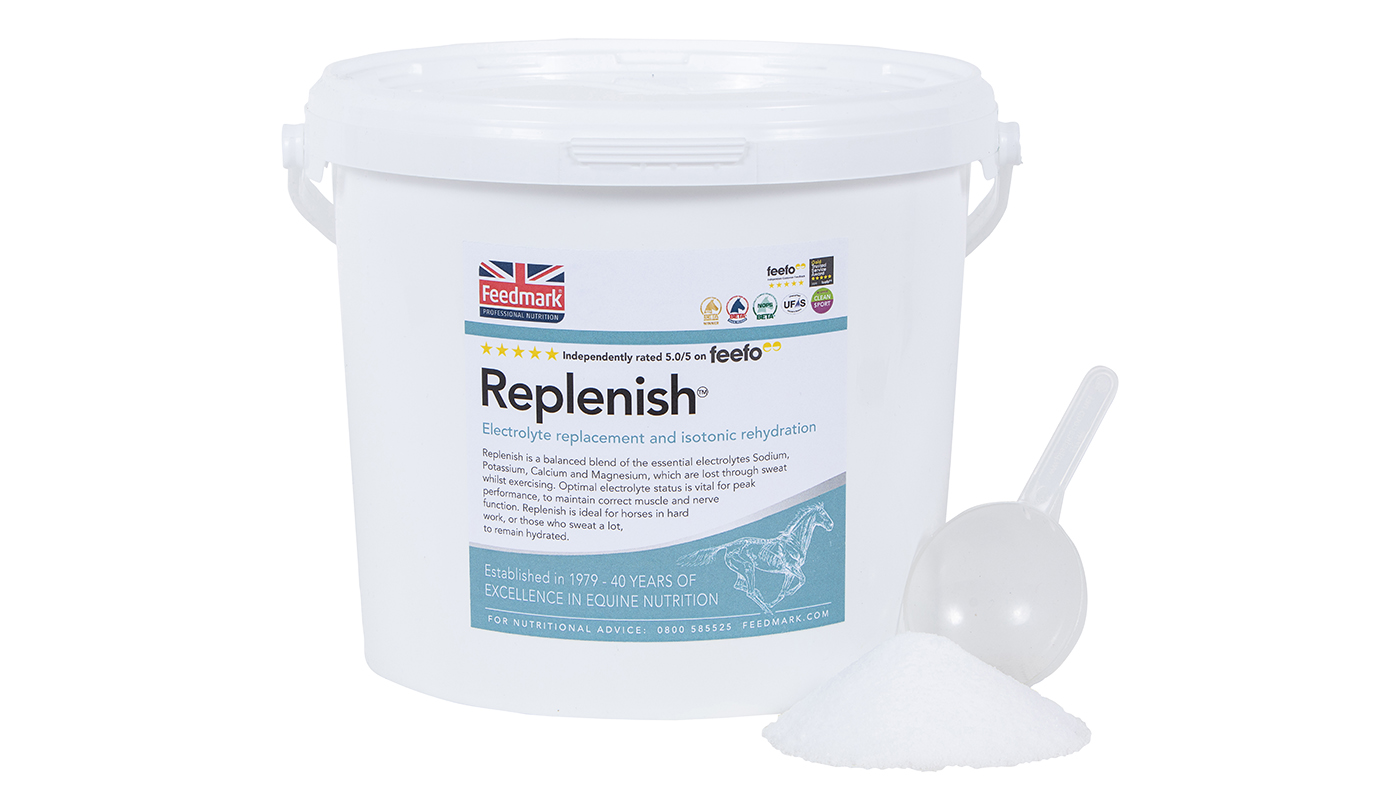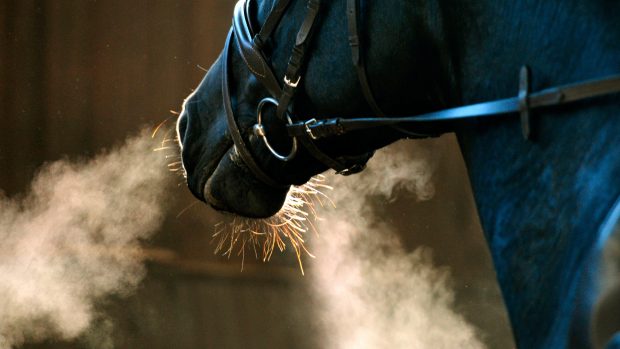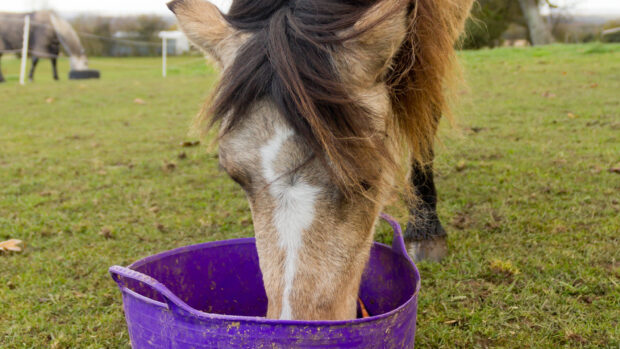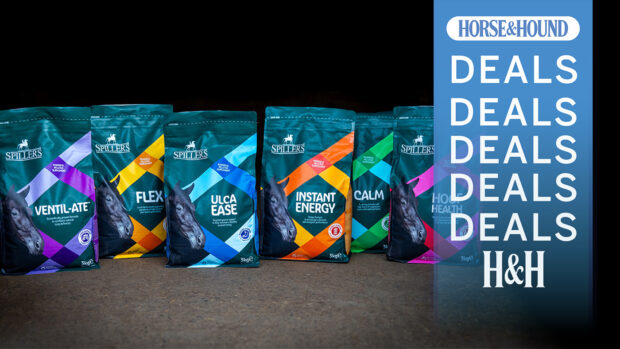Are you confused about the best electrolytes for horses, why they are important and how to ensure your horse has the right levels? Or are you looking for the best electrolyte product for your horse? Then we are here to help.
Electrolytes are commonly fed to horses, particularly in the summer months, but in order to get the best out of them, choose the right one and know how to feed them, it’s important to understand how they work.
Electrolytes for horses: what are your options?
Here is a selection of the best electrolytes for horses on the market…
NB: Cost per day has been calculated using the maintenance measure for a 500kg horse in light work (where there was variation) and the RRP of the smallest available tub. Some products require you to feed more with a higher workload, which will increase the cost per daily measure, while buying a larger tub will likely decrease it – these costs per day are a guide only.
Equine America Apple Lytes
Form: Powder
Sizes: 2.5kg, 10kg
RRP: £23.50 for 2.5kg
Daily measure: 30g
Cost per day: £0.28
Carefully formulated to replace the key electrolytes and encourage drinking to help prevent dehydration. They are highly palatable and should be mixed in feed. Also available as a syringe paste.
Equine Products UK Everyday Electrolyte
Form: Powder
Sizes: 1kg, 20kg
RRP: £11.94
Daily measure: 50g
Cost per day: £0.60
Formulated for long-term daily use, this product assists with the movement of glucose to cells for energy metabolism as well as replacing electrolytes.
NAF Electro Salts
Form: Powder
Sizes: 1kg, 4kg
RRP: £19.99 for 1kg
Daily measure: 30g
Cost per day: £0.60
Electro Salts is a concentrated combination of the essential plasma salts combined with dextrose to aid efficient absorption. It should be fed following exertion, after heavy sweating or during periods of very hot weather, and can be given in the feed or dissolved in water.
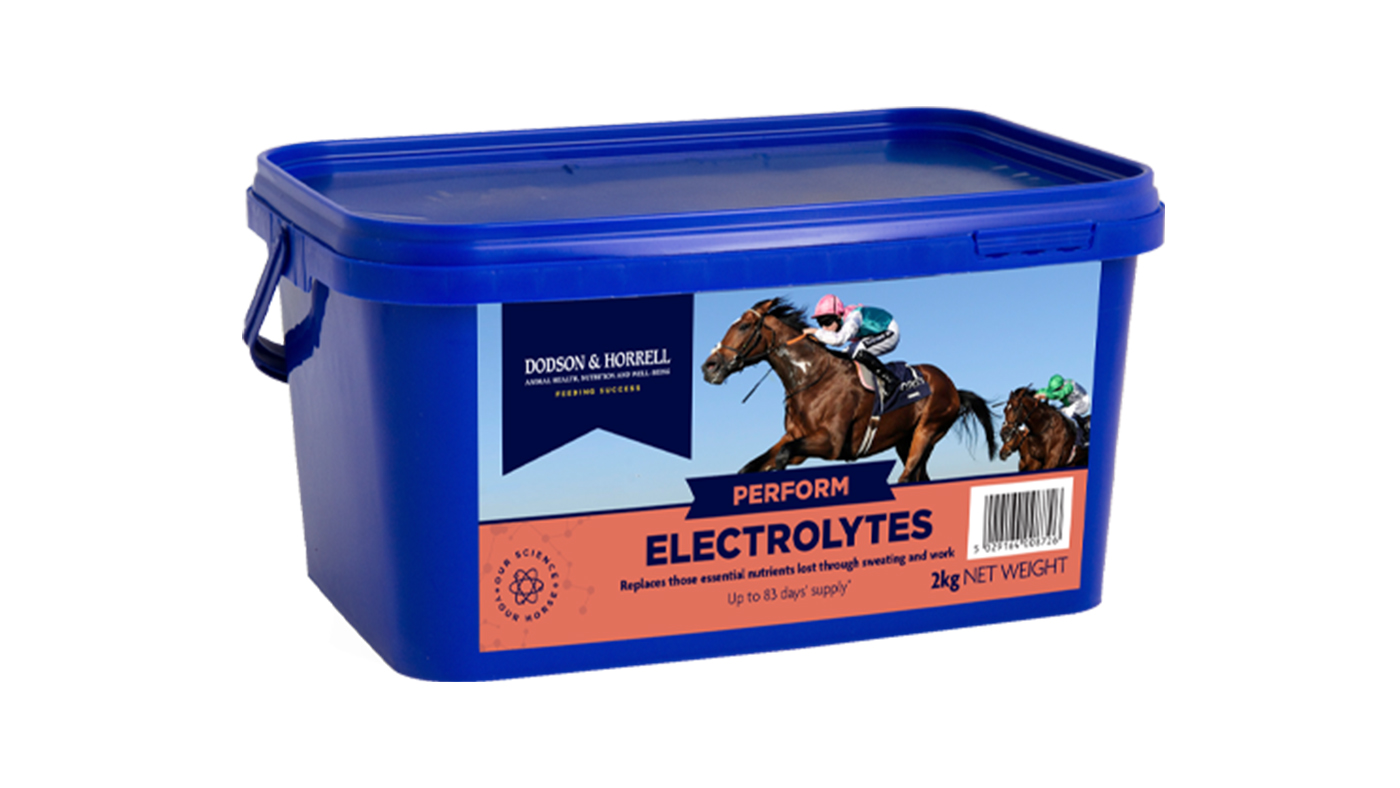
Dodson & Horrell Electrolytes
Form: Powder
Sizes: 2kg, 5kg, 15kg
RRP: £24.40 for 2kg
Daily measure: 60g
Cost per day: £0.73
These balanced and flavoured electrolytes are easy to incorporate into an existing diet on days when a little extra replenishment is needed for a better recovery.
BettaLife ElectroLYTE+ Complete Hydration Formula
Form: Powder
Sizes: 1.25kg, 2.5kg, 5kg
RRP: £30 for 1.25kg
Daily measure: 25g
Cost per day: £0.60
ElectroLYTE+ is a complete hydration formula containing a balanced spectrum of Sodium, Chloride, Potassium, Calcium & Magnesium to support rehydration, aid recovery times, and maintain optimum performance.
Science Supplements Complete Electrolytes
Form: Powder
Sizes: 2kg, 10kg
RRP: £39.99
Daily measure: 28g
Cost per day: £0.56
This palatable and balanced electrolyte is gentle on the stomach and uses microencapsulation technology to ensure it reaches the small intestine, where electrolyte uptake is optimal, before dissolving. Also available as a syringe paste.
TopSpec Electrolytes
Form: Powder
Sizes: 1.5kg, 3kg, 9kg, 20kg
RRP: £19.95 for 1.5kg
Daily measure: 100g
Cost per day: £1.33
This high-salt formula is flavoured with wild fruit berries and should be fed in addition to any salt already in the diet. It’s recommended that you divide the daily amount equally between feeds, and that it’s used for at least two days after sweating.
Nettex Equine Electrolyte Maintenance Liquid
Form: Liquid
Sizes: 1l
RRP: £12.85
Daily measure: 50ml
Cost per day: £0.64
This is rapidly absorbed to replace vital salts required for recovery and maintaining stamina. The peppermint-flavoured powder can be added to water or feed after sweating, during hot weather, exercise or in times of stress. Also available in powder form.
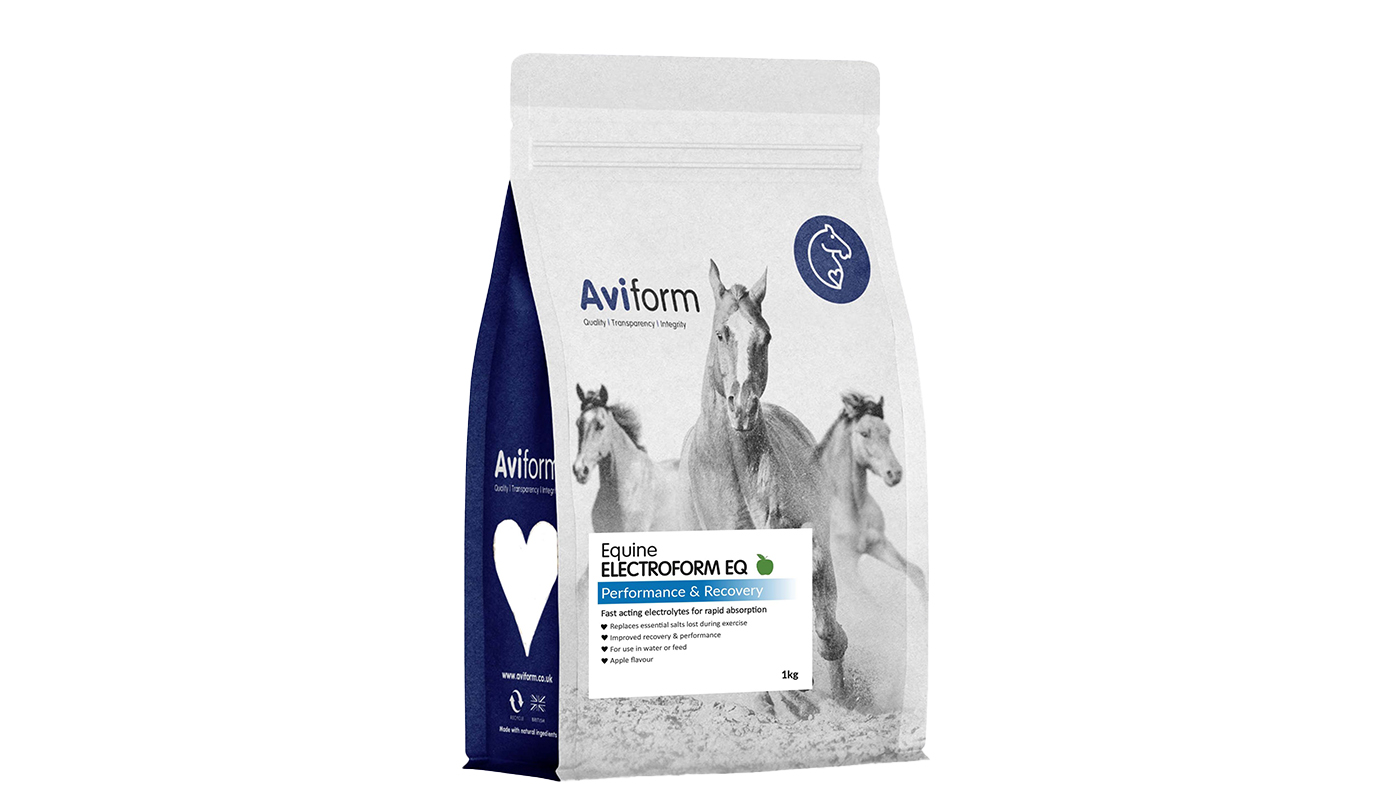
Aviform Electroform EQ Equine Electrolytes
Form: Powder
Sizes: 1kg pouch, 2kg tub
RRP: £22.95 for 1kg
Daily measure: 35g
Cost per day: £0.80
This fast-acting electrolyte contains the optimum ratios of sodium, chloride, potassium, magnesium, calcium, MSM, glucose and vitamin C. It’s described as easy to use and palatable, and can be administered in water or feed.
Baileys Aqua-Aide
Form: Powder
Sizes: 2kg, 9kg
RRP: £16 for 2kg
Daily measure: 30g
Cost per day: £0.24
This provides the optimum balance of sodium, potassium, chloride, magnesium and calcium. It also contains dextrose for palatability and improved absorption. It can be given in water or wet feed, beet or chaff, whenever your horse sweats.
Omega Equine Electrolytes
Form: Powder
Sizes: 1.5kg, 5kg, 10kg
RRP: £13.99 for 1.5kg
Daily measure: 30g
Cost per day: £0.28
This carefully balanced combination of vital electrolytes to maintain general health, performance and healthy hydration in horses by ensuring proper muscle and nerve function, which is crucial for optimal health.
Horse First Heavy Sweat
Form: Powder
Sizes: 1kg, 3kg, 10kg
RRP: £12.65 for 1kg
Daily measure: 50g
Cost per day: £0.63
This balanced electrolyte supplement is free from glucose and fillers. Also available as a syringe paste.
Cavalor Electrolyte Balance
Form: Powder
Sizes: 800g, 5kg
RRP: £32.50 for 800g
Daily measure: 45g
Cost per day: £1.63
This supplement contains the vital salts as well as some important B vitamins. It also includes essential amino acids and sugars that provide energy and promote the absorption of electrolytes. It can be given in a feed or dissolved in drinking water right after a period of sweating.
Feedmark Replenish
Form: Powder
Sizes: 1.5kg, 3kg, 6kg
RRP: £22.99 for 1.5kg
Daily measure: 50g
Cost per day: £0.77
This balanced blend of the essential electrolytes will help keep competition horses performing at their best by maintaining correct muscle and nerve function for optimum health.
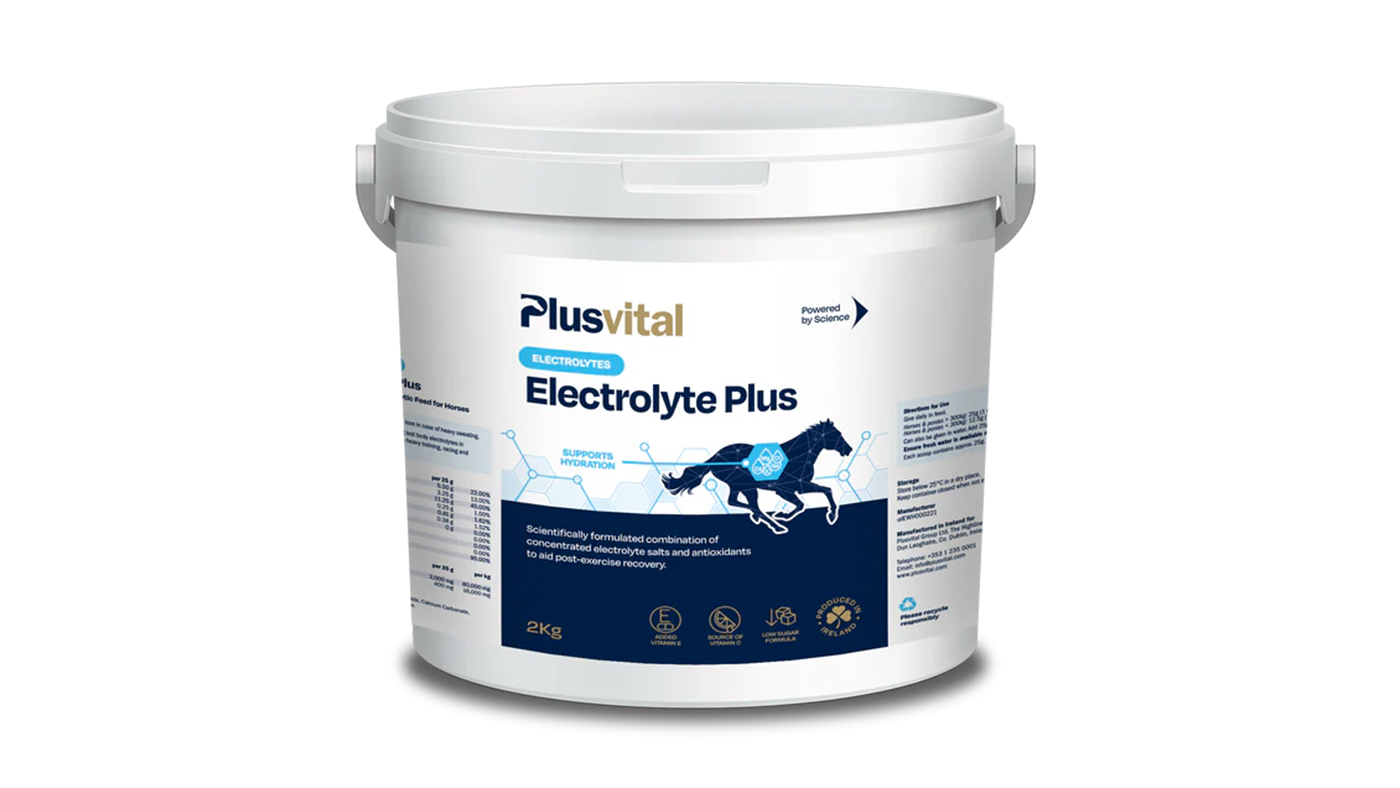
Plusvital Electrolyte Plus
Form: Powder
Sizes: 2kg, 4kg, 15kg
RRP: £25.50 for 2kg
Daily measure: 25g
Cost per day: £0.32
This supplement contains an appropriate balance of salts lost in exercise, while also providing anti-oxidant ingredients to support recovery. It’s recommended that you dilute it in water after exercise, but it can also be mixed into feed.
What are electrolytes?
Electrolytes are minerals dissolved in the blood and tissues of the body, which carry a positive or negative charge and can bind with another ion to make a “salt”. They help to preserve the correct balance of fluids in the body’s cells and are involved in muscle function and the processing of wastes. Deficiencies cause dehydration, impaired performance and may exacerbate clinical problems such as azoturia.
The main electrolytes are:
- Sodium (Na+)
- Chloride (Cl−)
- Potassium (K+)
- Magnesium (Mg2+)
- Calcium (Ca2+)
Horses lose electrolytes daily through sweating, in urine and faeces. These losses can normally be replaced in the diet. Horses rely on sweating to control body temperature during exercise and it is generally accepted that 90% of a horse’s weight loss after exercise is due to sweating. It is important that this weight loss is monitored and the fluid and electrolyte losses replaced, otherwise poor performance will result.
During periods of exertion such as competition and training, electrolyte losses can be considerable, particularly during hot weather. Even under normal exercise conditions, a 500kg horse could lose 10 litres of sweat during two hours of exercise.
Signs of electrolyte deficiency in horses include:
- Dull coat
- Sunken eyes
- Depression
- Listlessness
- Poor performance
- Dark urine
How to provide electrolytes to horses
The horse’s body cannot retain water without the presence of electrolytes, so simply offering water after exercise, while important, will not fully rehydrate your horse. Electrolytes should be added to either the water or the feed.
Adding electrolytes to water to form an isotonic solution (a solution that contains the same electrolyte concentrations as that of the body fluids) will ensure that both fluid and electrolyte losses are replenished and the horse becomes quickly rehydrated. However, after prolonged sweating it will take several days of electrolyte supplementation to completely replenish losses.
Alternatively, if your horse is a poor drinker or there is no opportunity to replace fluid losses during the competition, electrolytes may be fed alongside a small amount of concentrate feed. Electrolyte pastes are also available. However, a large single dose can cause the horse to absorb water from the blood vessels surrounding the gut and actually worsen the effects of dehydration in the short term.
Sodium chloride (table salt) can be made available for the horse ad lib in the form of a salt lick, but intake should be monitored, particularly in hot weather, as evidence has shown horses do not naturally self regulate their intake. Alternatively feeding a tablespoon of table salt daily will ensure your horse receives sufficient sodium chloride.
Giving electrolytes to competition horses
The electrolytes most commonly used in supplements – sodium chloride, calcium carbonate and potassium chloride – are not included in the FEI Clean Sport prohibited substances list. Neither are other common ingredients, such as sodium bicarbonate or glucose.
Simple electrolyte supplements should, therefore, be safe for use in competition horses. However, it is advisable to check the label of any supplement or ask the manufacturer. For the full list of banned substances visit feicleansport.org
You might also like:

Energy-boosting supplements: what’s on the market?

Dehydration in horses can be deadly — here’s what you need to know

Electrolytes explained
The harder a horse works, the more electrolytes he will lose. Supplementation may be necessary, explains Natalie McGoldrick MRCVS

Supplements to help joints keep working at their best: what’s on the market?

Subscribe to Horse & Hound magazine today – and enjoy unlimited website access all year round
Horse & Hound magazine, out every Thursday, is packed with all the latest news and reports, as well as interviews, specials, nostalgia, vet and training advice. Find how you can enjoy the magazine delivered to your door every week, plus options to upgrade your subscription to access our online service that brings you breaking news and reports as well as other benefits.

